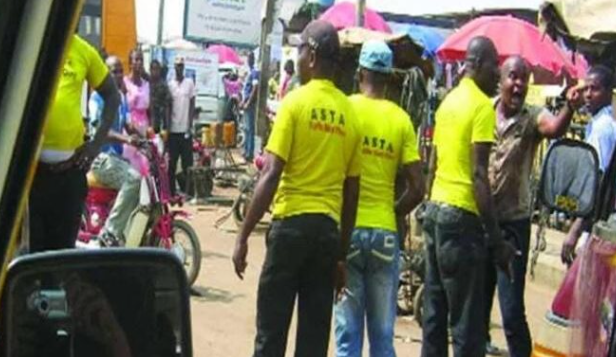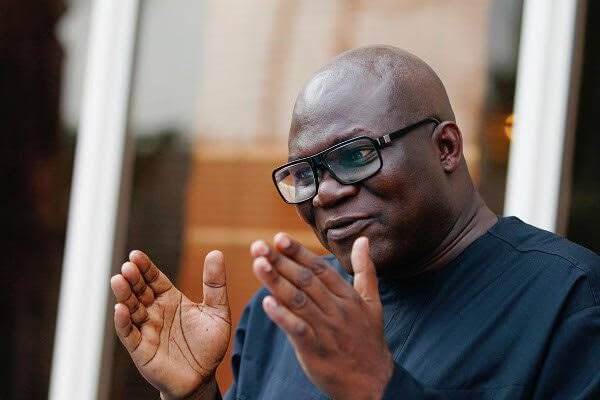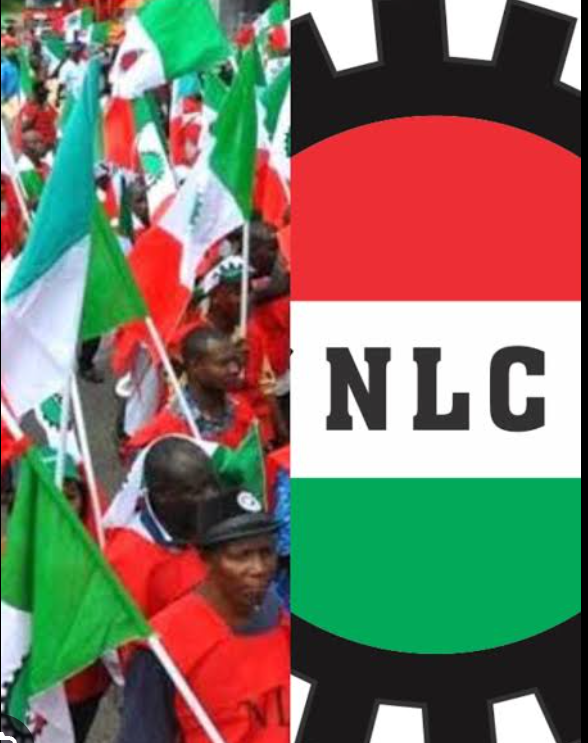News
Electricity tariff: Speaker Abbas to sponsor bill for compulsory NASS, stakeholders consultation

Electricity tariff: Speaker Abbas to sponsor bill for compulsory NASS, stakeholders consultation
..says critical problems in power sector, value chain must be addressed
By Gloria Ikibah
The Speaker of the House of Representatives, Hon. Abbas Tajudeen, has announced plans by him to propose a law that would make it mandatory for the relevant Federal Government bodies to consult the National Assembly and other stakeholders before fixing Electricity tariff.
“Accordingly, I will sponsor a bill to provide administrative procedures that entrench proper consultation and legislative review of process for tariff setting in Nigeria’s electricity and other public services,” he said while declaring open a power sector stakeholders interactive dialogue/workshop organised by the House Committee on Power.
The event was themed: ‘Confronting Nigeria’s Power Challenge as the Nation Migrates to a Multi-Tier Electricity Market: A Legislative Intervention.’
The intervention by the Speaker is coming at a time when Nigerians are criticising the recent electricity tariff increment.
The Nigerian Electricity Regulatory Commission had earlier in April approved an increase in electricity tariff for customers under the Band A classification, with the customers paying N225 kilowatt per hour, up from N66.
Band A customers are those who enjoy not less than 20 hours of electricity supply daily. They represent 15 per cent of the 12 million electricity customers in the country.
The Speaker said he would have expected that the forum and extensive consultations would have preceded the implementation of the new multi-tier electricity system.
“Having this consultation now appears to be an afterthought and goes contrary to the Electricity Act, 2024, which mandates consultation with all relevant stakeholders in determining just and fair tariffs,” he stated.
Speaker Abbas cited Section 33 of the Electricity Act 2024 as establishing the National Electricity Regulatory Commission (NERC) as a public agency subject to the oversight responsibility of the National Assembly under Sections 80-88 of the Constitution.
He stated that Section 34 of the Act specifically empowers the NERC ‘to ensure that the prices charged by the licensee are fair to consumers and are sufficient to allow licensees to finance their activities and to allow for reasonable profit for efficient operation’ and to ‘ensure that regulation is fair and balanced for customers, licensee, investors and other stakeholders.’
Speaker Abbas said: “I hope this forum allows all stakeholders to interrogate whether the new system meets the criteria outlined in the Act.
“The fundamental principles of just and fair pricing of electricity as laid out by a leading authority in this field are (1) simplicity, (2) understandability, (3) acceptability, (4) non-controversial, (5) stability, and (6) non-discriminatory. The question before you today is whether the new tariff model meets these principles.
“In framing the way forward, we can look towards best practices and successful models from other countries that have implemented similar market structures. Notable strategies include strong regulatory oversight to ensure fairness and transparency across all tiers.”
The Speaker stressed the need to address the problems bedevilling the power sector and electricity value chain in Nigeria.
Speaker Abbas also stated that the House’s commitment to “transforming the power sector into a model of efficiency and sustainability is unwavering.”
He said despite the challenges, together as stakeholders, a reformed power sector that drives national growth and enhances the quality of life for all Nigerians is achievable.
Speaker Abbas noted that discussions at the forum were set against the backdrop of the significant challenges and remarkable opportunities within our power sector.
He said: “The government’s objective is clear – to foster a resilient, efficient, and sustainable power sector capable of supporting our nation’s ambitious economic and developmental goals.
“Historically, the Nigerian power sector has grappled with challenges that have stifled its growth and hampered its efficiency. These challenges include inadequate generation capacity, dilapidated infrastructure, frequent disruptions in power supply, and financial inefficiencies that have eroded the sector’s viability.
“Moreover, the inadequate metering and the consequent revenue losses have perpetuated a cycle of debt and underinvestment that has undermined the sector’s potential.”
The Speaker said as the nation navigates these challenges, the stakeholders must foster collaborative efforts that leverage both public and private sector expertise and resources. “This dialogue embodies such collaboration and is crucial in charting a forward path,” he said.
Speaker Abbas also said the shift towards a multi-tier electricity market represents a strategic pivot in our approach to power sector reform. He added that this model envisaged a structured market segmentation that allows for differential pricing and service levels tailored to diverse consumer needs and capacities.
He stressed that it promised enhanced efficiency through competitive practices, encouraged investment by delineating clear market segments, and improved reliability and service delivery across the board.
The Speaker noted: “However, this is just one side of the coin. Despite the much-touted benefits, the transition to a multi-tier market is challenging. These include regulatory complexities, the need for substantial capital investment, the risk of market segmentation leading to disparities in service quality, and resistance from different stakeholder groups due to changes in tariff structures.
“We must acknowledge that numerous stakeholders and industry experts have expressed concerns that the proposed increase in electricity tariffs could lead to significantly higher utility bills. This increase could reduce disposable income for consumers, escalate operational costs for businesses, and increase the prices of goods and services, disproportionately affecting low-income earners in Nigeria. Some experts argue that these changes might drive more individuals into poverty, especially as inflation and foreign exchange issues continue to strain households and businesses.
“Additionally, critical problems within the electricity value chain need to be addressed. Technical and commercial losses, which have not been effectively tackled, add inefficiencies that consumers are indirectly forced to cover, contributing to the cost recovery efforts. These losses amount to billions of naira.”
Speaker Abbas commended the government under President Bola Ahmed Tinubu, GCFR, for its “unwavering commitment and robust drive towards overhauling the power sector.”
He recalled that the first bill to be signed into law by the President, barely a few weeks after his inauguration, was the Electricity Act (Amendment) Bill, 2024, which authorised states, companies, and individuals to generate, transmit and distribute electricity. He noted that the law repealed the Electric Power Sector Reform Act (EPSRA) signed by President Olusegun Obasanjo in 2005.
The Speaker also commended Chairman of the House Committee on Power, Hon. Victor Nwokolo, and members of the committee for their relentless commitment and leadership in spearheading the legislative framework that supports the transformative agenda of the President.
“This is in line with our Legislative Agenda, which prioritises economic growth and transformation of key sectors of the economy, especially power,” he said.
At the event were Minister of Power, Chief Adebayo Adelabu, and heads of agencies under the ministry; former Minister of Power and Chairman of Geometric Power Ltd., Prof Bartholomew Nnaji; former Minister of Information and National Orientation, Prof. Jerry Gana; Group Managing Director of Sahara Group, Kola Adesina; Generating Companies (GenCos), Distribution Companies (DisCos), among others stakeholders.
News
Angry mob sets two revenue collectors ablaze in Anambra

By Kayode Sanni-Arewa
An angry mob has reportedly set ablaze two yet-to-be-identified revenue collectors of the Anambra State Government for causing a tipper driver to ram and kill a bystander at the Old Market Road along Venn Road by Egerton Bus Stop in Onitsha, Anambra State.
The incident, which occurred on Friday, caused confusion, thereby leading to gridlock in the area.
Eyewitnesses near the scene said the tipper driver lost control of the vehicle and rammed into the bystander as the revenue touts were dragging the steering of the vehicle with him.
According to sources, the revenue collectors were chasing the tipper driver over a payment they wanted him to make before he rammed into the man.
One of the sources said, “There was chaos in Onitsha as an angry mob set ablaze about two revenue touts, while four others were lucky as they managed to escape. The revenue collectors, numbering about six were chasing the tipper driver over a certain amount they asked him to pay.
“As they were chasing him, some of them were dragging the steering with him, but unfortunately, in the process, the tipper driver lost control and rammed into a passerby, killing him instantly.
“Immediately, the revenue collectors saw the damage they had caused; they tried to flee the scene, but the Onitsha mob got angry and descended on them, setting ablaze two of them instantly while four of them managed to escape.
“This is one death too many that has been going on in Anambra in the last two years. The person who the tipper driver rammed into was a known person. We cannot continue like this anymore. These revenue touts of the state government have killed more Ndi Anambra than non-state actors.”
Another source and a trader in the area also said, “Onitsha was hot this morning at Egerton by Old Market Road. Revenuemen were dragging steering with a tipper driver because he refused to bribe them, and in the process, the vehicle ran over an innocent man.
“Then, seeing the result of their stupid action, they tried to run away. But the angry people chased and caught two of them and set them on fire.”
The videos of the incident showing the burnt corpses of the revenue collectors have been making the rounds on social media to corroborate the story.
The Chairman of the association, Ebuka Unekwe, who also confirmed the development, lamented that the revenue collectors have been a pain on the neck of tipper drivers in the last two years.
When contacted on the development, on Saturday, the Anambra State Police Command’s spokesman, SP Tochukwu Ikenga, confirmed the development, saying the police have responded swiftly to bring the situation under control.
He said, “Anambra Police responded swiftly on the receipt of the fatal accident that happened within that area.
“We are already working with the relevant authorities to ascertain what happened and find an amicable solution to such, especially on future occurrences.
News
Igbos to boycott Arise TV over Abati’s uncouth statement

The Indigenous People of Biafra lawyer, Ifeanyi Ejiofor, has called on Ndigbo to boycott Arise TV until its anchor, Reuben Abati, tenders an unreserved apology.
The former Special Adviser on Media and Publicity to former President Goodluck Jonathan, Reuben Abati, recounted during a morning programme how a former minister could not buy land for his wife in Igbo land.
Abati’s statement that Ndigbo does not sell land to non-indigenes generated condemnation from the people of the South East region.
Most X users of Igbo extraction accused Abati of committing ethnic bigotry against the group.
In reaction on Friday, on his X handle, Ejiofor alleged that he had previously taken on the former presidential spokesman for his alleged anti-Igbo statement.
“When I confronted Abati frontally on a live television interview (TheMorningShow) a few years back about his deep-rooted hatred for Igbos and our struggle for freedom from enslavement within Nigeria’s political arrangement, I was fully seized of the disturbing facts of his ethnic bigotry. It is inborn in him; thank God he could not hide it any longer,” he narrated.
The IPOB lawyer demanded Arise TV’s owner, Nduka Obaigbena, mandate Abati to apologize to Ndigbo. He called on South East indigenes to boycott the station if Abati failed to tender a public apology.
“Reuben Abati must tender an unreserved public apology to Ndi Igbo, but if Nduka Obaigbena condones his anti-Igbo sentiment (Igbophobia), then, this should be a convenient point for Igbos to boycott, in its totality, the promoting of all programmes on Arise TV platforms,” Ejiofor stated.
News
Minimum Wage: Our deadline remains December 1 -NLC insists

The national leadership of the Nigeria Labour Congress (NLC) has insisted its December 1, 2024, deadline for state governors to implement the new minimum wage remains unshakeable.
The Labour Union who disclosed this in a statement issued by NLC’s Head of Protocol and Public Relations, Benson Upah warned that non-compliance with the directive will not be tolerated.
Ubah emphasized that the ultimatum remains unchanged, urging state governments to finalize agreements with labour unions before the deadline, noting that states like Sokoto, Zamfara, Taraba, and Plateau have taken significant steps to comply.
Explaining further, he stated that Sokoto has initiated wage adjustment proposals, while Taraba and Plateau recently approved an N70,000 minimum wage.
Similarly, Zamfara state has put in plans for implementation after verifying its workforce.
However, states such as Cross River, Osun, and Imo remain in negotiation or unresponsive.
This has raised concerns about meeting the deadline set by NLC.
The NLC and the Trade Union Congress (TUC) continue to monitor compliance across the nation, advocating for fair wages amidst rising inflation.
-

 News20 hours ago
News20 hours agoReps Demand Details Of Project Undertaken From Ministry Of Solid Minerals In 2024 Budget
-

 News20 hours ago
News20 hours agoPDP leaders, critical stakeholders endorse Hon. Teejay Yusuf for National Chairman
-

 Metro4 hours ago
Metro4 hours agoBusinessDay Journalist Finally Regains Freedom From ‘One-Chance’ Kidnappers In Abuja
-

 Metro9 hours ago
Metro9 hours agoCourt remands 113 foreigners over alleged cybercrime
-

 News20 hours ago
News20 hours agoSpeaker Abbas Decries Gross Inadequacy In Health Sector Despite Annual Allocations
-

 Metro9 hours ago
Metro9 hours agoGunmen kidnap journalist’s relatives, demand N50m ransom
-

 News10 hours ago
News10 hours agoJapa: We’ve discovered over 10,000 fraudulent foreign student acceptance letters – Canadian Authorities
-

 News9 hours ago
News9 hours agoFull List: Innoson, Mitsubishi, Dantama , Others – CAC Delists 80,000 Companies








